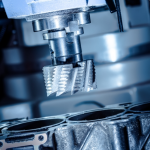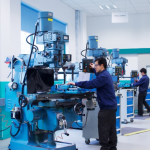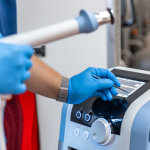Table of contents
What does GCB’s machinery assessment involve?
The purchase of new or used machinery carries legal responsibility for safe use and regulatory compliance. GCB conducts independent pre-purchase conformity assessments. This process may include:
- Reviewing the technical condition (mechanical, electrical, electronic),
- Analyzing technical documentation provided by the supplier,
- Verifying compliance with EU requirements, including the Machinery Directive,
- Identifying potential technical or formal non-conformities.
How does the assessment process work?
The process begins with an analysis of the machine’s specifications and documentation. GCB experts then conduct an assessment-either remotely or on-site—which may include:
- Evaluation of component wear and condition,
- Verification of control system safety,
- Analysis of conformity with harmonized standards,
- Review of documentation completeness (e.g., declarations of conformity, manuals, schematics).
Upon completion, GCB provides a technical opinion outlining the results of the conformity assessment.
Scope of technical and legal evaluation
GCB’s independent assessment may cover the following key areas:
- Technical condition of machinery (mechanical, electrical, functional),
- Review of documentation compliance with EU regulations,
- Verification of design conformity with harmonized standards,
- Identification of any deficiencies or risks,
- Review of implementation and operational documentation,
- Recommendations for areas requiring further evaluation or modernization.
Benefits of an independent GCB assessment
Working with a notified body ensures transparency and objectivity throughout the machinery acquisition process. Key benefits include:
- Risk reduction – early identification of non-compliance before machinery is put into operation,
- Improved operational safety – confirmation of compliance with legal and technical requirements,
- Independent evaluation – supported by accreditation from PCA (Certificate AC 225),
- Transparent process – full documentation of all assessment stages.



















